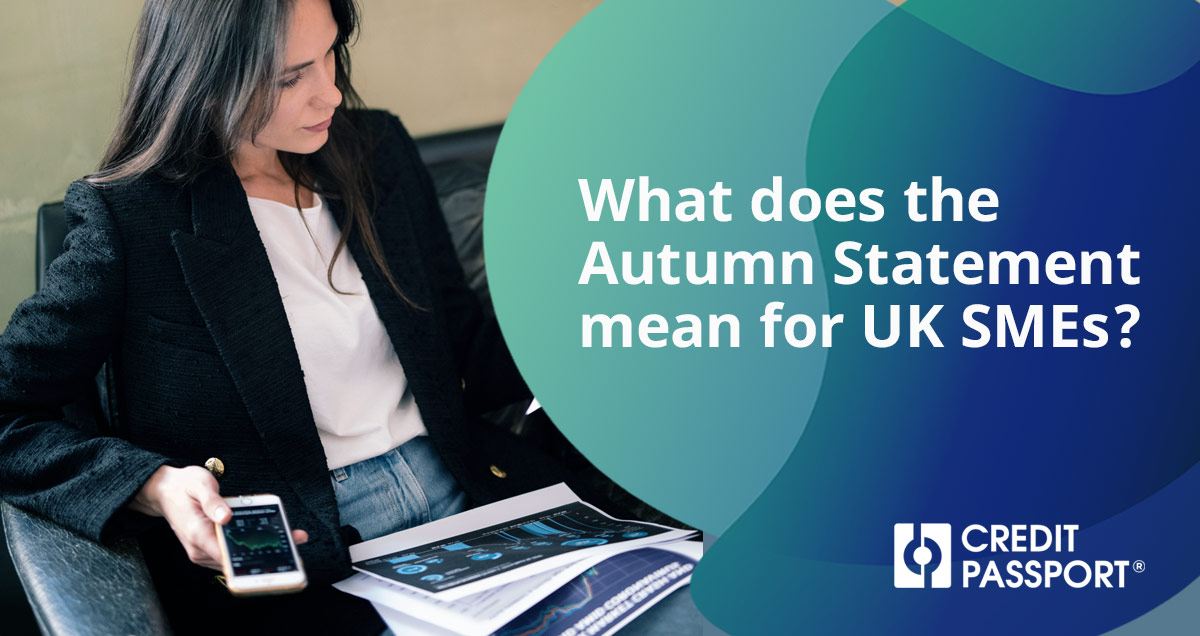
What does last week’s Autumn Statement mean for UK SMEs?
Our blog explores how small businesses can face rising taxes, alongside rising costs, and an impending global recession head on and grow.

Our blog explores how small businesses can face rising taxes, alongside rising costs, and an impending global recession head on and grow.
At a time of economic uncertainty, SMEs more often than not bear the brunt. Below, we’ve compiled some of the main points that came from the Chancellor, Jeremy Hunt, last week that will impact SMEs the most.
As part of reforms to Research and Development (R&D) tax reliefs, the Chancellor told MPs the additional deduction for SMEs will decrease to 86%, while the credit rate will be cut to 10%. Mr Hunt also said there will be an increase in the separate R&D expenditure credit rate from 13% to 20%.
The National Living Wage is also set to increase by 9.7% - the largest ever rise – to £10.42, creating the need for SME owners to raise wages for those earning the minimum amount.
The Chancellor also announced that there will be a freeze in the VAT registration threshold at £85,000 until 2026. While this remains high by international standards, if businesses earn more due to inflationary prices they will have to register to pay VAT.
Additionally, any dividend allowances that a limited company owner may pay themselves will be cut from £2,000 to £1,000 in 2023-24, then to £500 in 2024-2025, while the capital gains tax allowance will be cut from £12,300 to £6,000 in 2023-24, then to £3,000 in 2024-2025.
Regarding business rates, the Chancellor announced a targeted support package worth £13.6 billion over the next five years, to help businesses as they transition to their new bills (from 1 April 2023), protect businesses from the full impact of inflation, and support high streets.
While many of the Chancellor’s announcements were welcome, others will feel these decisions will add to the already long list of existing challenges including surging prices, supply chain issues and economic uncertainty. Others have hit out at tax freezes, saying it will have a detrimental impact on SMEs in a turbulent economic forecast, eroding the post-tax income of SMEs at a time when their recovery remains in the balance.
What is clear however is that if SMEs want to grow, many will need to be able to access the finance they need to do so, and therefore should have a plan of action in place.
To face rising costs and increases in tax face on, accessing traditional finance, including getting loans, overdrafts, and creating accounts in 'bricks and mortar' banking institutions will be essential. Seeking forms of alternative finance to help fund gaps in working capital, or to provide some financial stability will also be a necessary step for many.
There are several options available for business finance. Besides traditional sources, there is also trade finance, invoice finance, asset finance, and working capital loans.
But to access these funds businesses will need to prove they’re financially stable and resilient. A business’s credit score is a huge factor in this but too often businesses cannot prove their creditworthiness.
Credit Passport®, utilises open banking to reflect an up-to-the minute picture of an SMEs financial health, structured around international banking standards. To make it easily understandable not just for lenders but for business owners too, it’s mapped to an instantly communicative A++ to E colour coded rating. This enables SMEs to both learn about and improve their financial health, build resilience and access the finance they need.